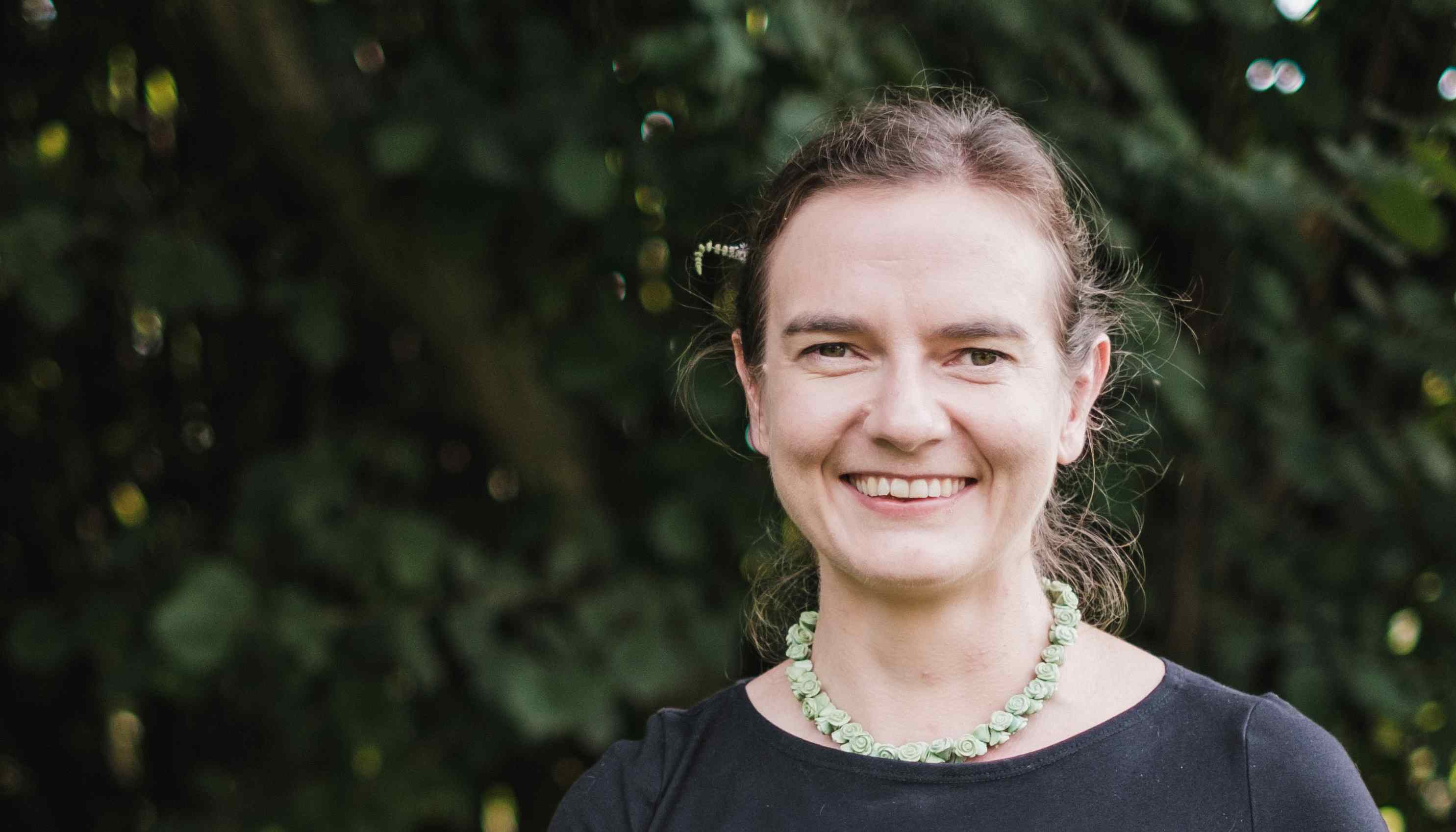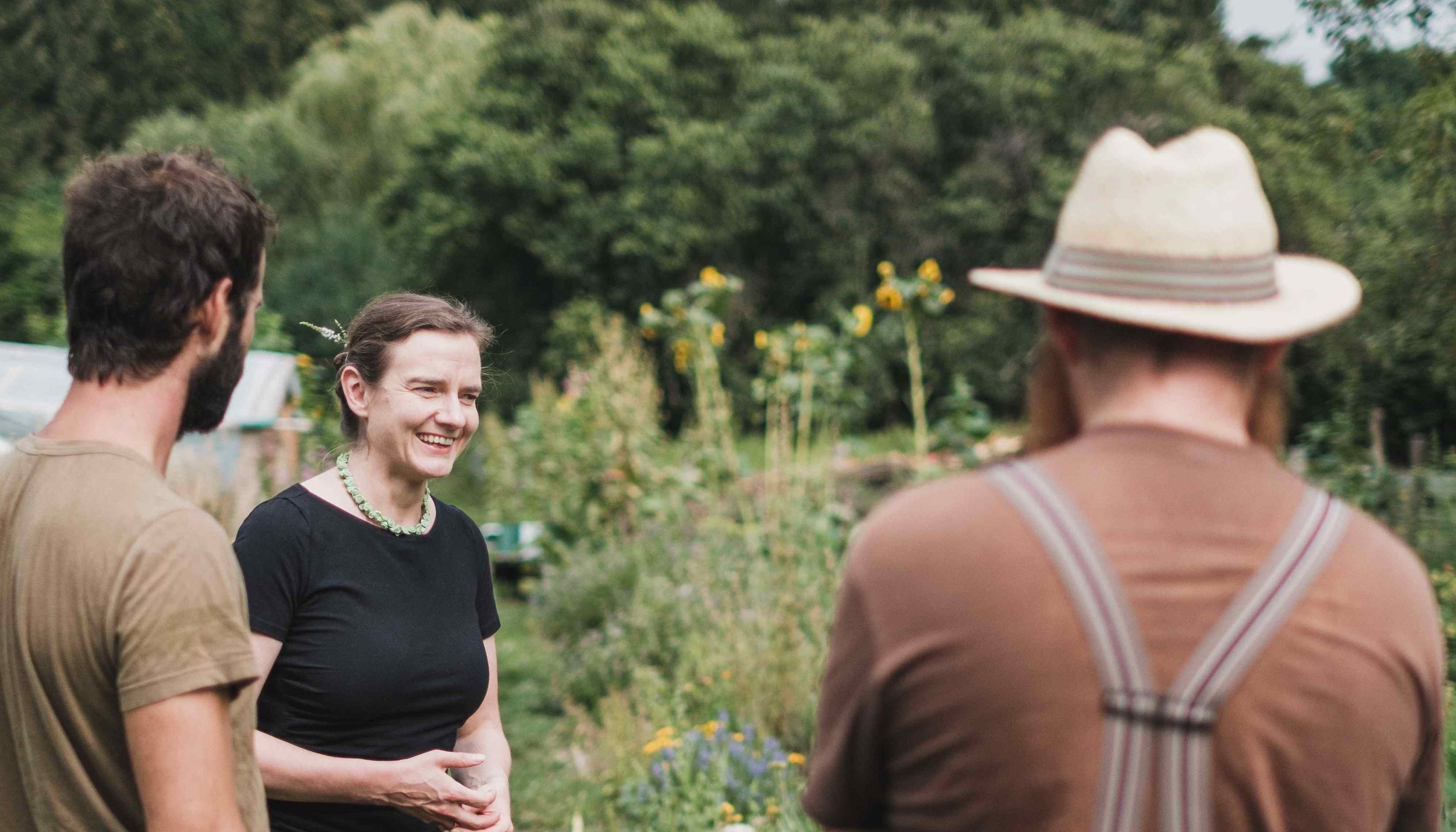structural development
New to the task force: Anja Nixdorf-Munkwitz
- structural development
- Hits: 2182
Hello!
Today we are introducing our new task force project manager, Anja Nixdorf-Munkwitz. Many people who live here in Unaffordable Land and are interested in the region have probably already encountered her (at least in the press) or through her numerous activities for good, regional food.

Anja Nixdorf-Munkwitz: We are pleased that the Zittau native has joined the Structural Development Task Force
She is known, for example, as the creator of " A Basket Full of Happiness ", as a member of the market enthusiasm network and with the new territory winners . Last but not least, she is known to a large circle through her many years of dedicated work as managing director of the Hirschfelde Kraftwerk Foundation . We are pleased to have her join our team - and asked her for an "interview" for our UBL blog readers.
Hello Anja, you are the new project manager in the Structural Development Task Force team. Welcome!
In which team are you responsible for which areas?
Hello, nice that we are talking to each other today. On April 1, 2024, I moved from the Hirschfelde Kraftwerk Foundation to ENO and now work as an employee in the STARK team , the “task force” for structural change. In the area of municipal consulting, I will be able to work in the areas of industrial culture, regional value creation and logistics in the future. My goal is to turn as many concrete ideas as possible into projects and to support those involved who might shy away from applications and forms without our help.
People read about you online that you have already done a lot and have always had a lot of responsibility: as the manager of an operational foundation under civil law with the tasks of foundation administration, committee work, foundation management and acquisition of foundation capital and project funds. This also included coordinating contacts with business, politics, administration and culture as well as participating in associations, networks and committees and setting up, implementing and evaluating projects. These are all your areas of activity. How did you become so versatile?
As a cultural manager, I have always looked for my tasks according to the motto, “Work is the art of making culture possible.” It was therefore with great pleasure that I took on the task of founding and building an operational foundation. And then it was about leading this foundation through many challenges and managing many transformation steps. There are always new challenges in the region: be it in day-to-day operations, through the development of projects, or in unexpected events such as the flooding of the Lusatian Neisse and its long-term consequences. It never gets boring! This is extremely fascinating because there are still no action patterns or guidelines for many tasks. A “cultural asset-sensitive process of site repatriation”? - we did it, as the first and only ones! Incidentally, successfully and in agreement with both civil society partners and cultural experts.
In addition to teaching and research, you also advise and support foundation initiatives.
Being able to reflect on practical challenges with students is always an interesting task. It opens your eyes to patterns and structures. That's why I love teaching. So switching between theory and practice. In my professional life, I have always benefited greatly from other people sharing their experiences. That's why it's important to me to give something back!
How can you imagine “giving back”?
As part of my opportunities as a foundation expert and NGO manager, I am happy to make myself available as a consultant and coach. Every conversation gives me a fresh perspective on the connections, so it's an absolute win-win situation.
You are a passionate networker. Where and how are you currently active?
I can currently also realize my passion for networking as chairwoman of the state association for industrial culture in Saxony . Past, present, future – the triad of industrial culture is a good symbol of our challenges and brings people with a wide variety of personal and professional backgrounds together. Tasks like this allow you to grow professionally and personally, that's what we work for.
And…what are you currently doing in research?
There is one question that I am currently very concerned about in the area of research: what interactions exist between our commitment and our identity. What happens to us when we do something for the region or for our issues? I would like to pursue this further.
Where can we see you - in teaching and research?
I will soon be taking part in the Fundamentals course at the HSZG with formats on monument protection and industrial culture.
Plus your regional initiatives A basket full of happiness and new territory winners . And there's definitely something else we don't know yet... Tell us something about these initiatives based on passion for the region!
Good food not only keeps body and soul together, but also makes life rich, enjoyable and roots us in the here and now. “A Basket Full of Happiness” was born out of the desire to make the good things in the region visible, “tastable” and to bring people together around the same table. To be recognized as a “new territory winner” among other things is a wonderful prize that I’m a little proud of, but I’m especially happy that I won it for the active and creative network. I had no idea what a mini cooking blog could achieve and I'm still amazed. Not only did we convince the Saxon State Chancellery, but we also founded the first bio-regio model region in Saxony, addressed technical questions of regional value creation and made a great deal of desire for networking and project development visible.
I believe that when personal volunteering turns into meaningful networking, it is a reward that you give yourself and others. Together with a few colleagues, I am active on the board of Slow Food Lausitz; we exchange ideas with those interested in enjoyment, sustainability and good food from all over Europe. How nice that we have now managed to bring the Saxon Lausitz into the “Genussmagazin”, which is sent to all members and interested parties throughout the German-speaking region. When I was at a project consultation in the nature park butcher shop in Mittelherwirgsdorf on Friday, a slow food enthusiast from Baden-Württemberg called, raved about Lusatia and spontaneously ordered the “gorgeous blood sausage that I read about”. That's how it should be, one would say good storytelling today, I say the love for the region goes through the stomach (also).

If you want to find out more about “A Basket Full of Happiness” and keep up to date, follow the “Basket” on Instagram
Do you already have an idea of how you could now fully use all this knowledge and energy at ENO to develop the district? Do you already have any exciting projects in mind?
We are all doers and doers in rural areas and, as we know, “woman” grows with her tasks. I'm very excited about my ENO time and am looking forward to being able to work in the team. In fact, the first week that I was able to work at ENO was a real jump into the water, but the water wasn't cold at all, but immediately invited me to go swimming. I would like to help open up the foundation sector for the region, devote myself to the topics of vacancies and revaluation and continue to work on regional value creation. In concrete terms, this means for me that I can help develop and submit a whole series of applications for actors in a timely manner. The first larger construction sites are already visible. It would be great if we could successfully canvass for civil society and municipalities at the federal level.
What is your favorite place in spring in Unzahlbarland? And as a Zittau resident, what are your favorite activities for quick local recreation - rather at the lake or on the mountain?
I always try to be completely where I am. I always notice that this is much easier said than done. We are traveling around the region, we work digitally and often the idea has already turned the next corner before we have taken the step. But wherever we are really present, that is where it is most beautiful. For me, Lusatia extends from the Theodor Fontane landscape of Lower Lusatia to the Caspar David Friedrich scenes of the Zittau Mountains. I am also fascinated by the ruined landscapes of the mining region and the “lost places” of industrial culture. Every look here invites you to discover.
We thank you for the conversation and look forward to working with you!
Do you have a topic from the region that you would like us to report on in the UBL blog, a great development, an initiative or a nice volunteer position? You write
about our events and citizen participation here - and invite you to subscribe to our newsletter for events so that you don't miss anything!
As a municipality, you should not miss our newsletter on funding updates for municipalities !
Thank you for rating this post.

